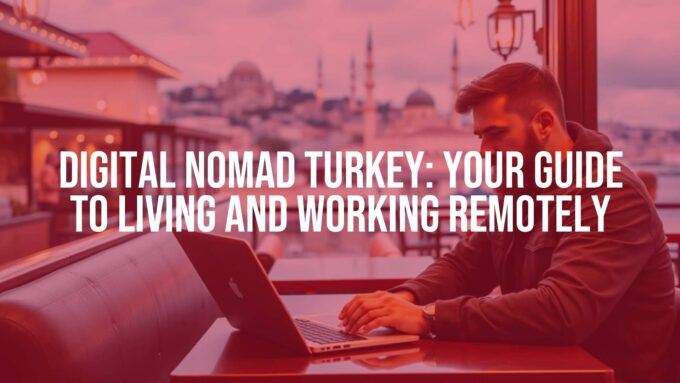Turkish society is strongly focused on family. Family values are at the center of life in Turkey, shaping daily behavior, traditions, and relationships. The strong sense of kinship, the importance of respecting elders, and helping one another create a social structure where people support each other. For many, family gives a sense of who they are, where they belong, and helps them feel safe.
Family’s role in Turkey is not just based on old customs. It directly affects social life, how people work, and personal choices. In this article, we will explain the main ideas of Turkish family values, how they developed, how they look today, and how things are changing as Turkey becomes more modern and connects with the wider world.
What Are Turkish Family Values?
Family is extremely important in Turkish society. Family here does not just mean parents and children, but includes grandparents, aunts, uncles, cousins, and even close friends who are treated like family. This broad network means people usually have strong social and financial support.
Turkish families have proven to be flexible over time. While big changes like city growth and smaller households have happened since the 1950s, family remains a key source of help and connection. Instead of turning to government services, Turks often turn first to their family for advice, emotional support, jobs, or even when they want to be involved in politics.
Main Beliefs About Turkish Families
- Respect for elders: Age matters a lot. The oldest family member usually has the most authority, and it is seen as rude to speak back or argue. People are careful in how they behave around elders, not arguing or even smoking in front of them. Elders are seen as wise and their advice is highly valued.
- Loyalty: Family members support each other and stay in touch, visiting often and helping when needed. This helps people feel united and rarely alone when facing problems.

Community Connections
In Turkey, “family” often goes beyond real relatives. Friends can become like family, providing their own support. This attitude helps create a strong sense of belonging for everyone.
Traditionally, families and even large groups or clans lived near each other to help defend and support one another. While cities have changed this, the spirit of helping others, especially through hospitality, is still common. Guests in a Turkish home are offered the best food and drink available, showing how important generosity is in Turkey.
Why Is Family So Important in Turkish Culture?
Family is the most basic and important part of Turkish life. It has always given people safety, helped them survive, and created order. The family group is the main place where people learn how to behave and what their culture expects from them.
Even as Turkey becomes more modern, family ties remain strong. Being with family gives people a strong sense of belonging. Family helps people face the many changes of today’s world.
Family and Social Life
Families in Turkey teach their children about their culture and how to live within it. Because of this, family affects not just private life but also society as a whole. The Turkish government even says the family is “the base of society” and works on policies to make families stronger, believing family support solves bigger issues like poverty and crime.
Respect for Elders and Older Family Members
- Children are taught from an early age to show respect to older people.
- Looking after elderly parents and grandparents is expected and an important part of family life.
- Grandparents often live with or near their children and help with raising grandchildren.
Everyday Influence of Family
Almost every part of life is influenced by family. People often make important decisions based on family wishes or needs. Many younger adults live with their parents for longer, and family gatherings are a big part of social life. Words like “abla” (older sister) or “abi” (older brother) are used even for non-family members as a sign of care and respect.

How Are Turkish Families Structured?
Traditional Turkish families often have several generations living together or nearby. Roles are usually well defined, which helps create stability and share responsibilities. While city living and modern life have changed this, many original values remain part of everyday life in Turkey.
Nuclear vs. Extended Family
| Type | Description | Where Most Common |
|---|---|---|
| Extended family | Multiple generations under one roof or close by; all help each other with daily life and farming | More common in rural areas |
| Nuclear family | Parents and children only | More common in cities |
The number of children per family is lower than in the past (now about two), and most families still keep strong connections with their extended relatives, even if not living together.
Roles of Men and Women
- Traditionally, men earn the family’s main income and usually do not handle chores at home.
- Women run the household, cook, clean, care for children, and often manage the small details of family finances. In rural areas, they may work in farming too.
- Men are expected to protect female family members and keep the family’s honor safe. In many places, the oldest man makes decisions for others, especially female relatives. While women are increasingly working outside the home in cities, traditional expectations remain strong in many areas.
Caring for Older Family Members
Caring for aging parents or grandparents is a basic responsibility. This usually means living together or staying nearby to provide daily help. Where living together is not possible, families try to visit often or arrange private care.
Marriage and Relationships
Marriage is seen as a union not just between two people, but between two families. Young people are expected to marry in their twenties, and marriage traditions are a major part of Turkish culture. While dating is becoming more common in cities, it is still often seen as leading directly to marriage.
Wedding Traditions
- Kına gecesi (henna night): Held before the wedding for the bride as she prepares to leave her family. Henna is placed on her hands and coins given as a wish for luck and wealth. Music and singing are common; the bride’s tears are seen as a normal expression of leaving her family home.
- Marriage celebrations often last several days and involve big gatherings, with both families taking part in many meals and customs. Guests often give money or gold to help the couple start out.

Arranged and Love Marriages
| Type | Description | More Common |
|---|---|---|
| Arranged marriage | Families help choose the spouse | Rural areas |
| Love marriage | Couple chooses each other, often after dating | Cities |
In many places, families still play a big role in choosing who their children marry. Dating in public is not common outside big cities, especially for unmarried couples. There is also a strong expectation in traditional families that women remain virgins until marriage and not live with men before marrying.
Views on Divorce
- Divorce is less common than in many Western countries, but becoming more frequent, especially in cities.
- After divorce, possessions are split evenly between husband and wife.
- Women may have a harder time getting remarried, especially in rural areas.
- Attitudes are changing with more people marrying older and more divorces happening. Laws are secular and give men and women equal rights, but cultural pressures can still be strong.
| Year | Average Marriage Age (Men) | Average Marriage Age (Women) | Divorces |
|---|---|---|---|
| 2001 | 26.0 | 22.7 | 91,000 |
| 2023 | 28.3 | 25.7 | 171,881 |
More people now wait to marry, especially young people in big cities, and more marriages are ending in divorce. Same-sex marriage is still not accepted in most of Turkey.
Raising Children in Turkish Families
Children are considered a great gift in Turkish culture. Raising children is a job for the whole family, not just the parents. Relatives often help, especially grandparents. This way, children are taught about their family’s traditions and values from a young age.
What Parents Expect from Children
- Children are expected to respect their elders and show good manners.
- Boys are sometimes expected to be more active, while girls might be encouraged to be more calm and polite. However, education is equally important for both boys and girls.
- Even when mothers work outside the home, they are usually responsible for raising the children, with grandparent support. Only a few children go to daycare.
Education and Values
School is seen as important for children’s success and family honor. But families don’t just rely on schools-family members, especially grandparents, spend lots of time teaching children about their culture, values, and traditions. This helps keep Turkish customs strong from one generation to the next.
Family Celebrations and Traditions
Families celebrate many special days and events. These rituals help everyone feel connected and make sure cultural traditions are kept alive.
Main Family Events
- Weddings: As described, usually big and filled with tradition.
- Births, circumcisions, and funerals: Each is marked with unique customs and family support.
Hospitality
- When entering a Turkish home, it’s polite to bring a gift such as sweets or flowers.
- Guests are honored with the best food and drinks.
- Serving Turkish coffee is a common way to welcome visitors and show friendship.

Religious and National Holidays
| Event | Type | Main Activities |
|---|---|---|
| Şeker Bayramı (Eid al-Fitr) | Religious | Family visits, feasting, exchanging gifts, elders’ hands kissed as a sign of respect |
| Kurban Bayramı (Eid al-Adha) | Religious | Animal sacrifice, family gatherings |
| National holidays | Secular | Families come together to celebrate Turkish history and identity |
How Are Turkish Family Values Changing?
Turkish family life is not staying the same-it is changing slowly as Turkey becomes more urban, modern, and open to the world. These changes affect who lives together, family size, and daily family life.
Family Size and Structure
- Nuclear (small) families are now more common than large, extended families.
- The number of children per family is dropping fast: from 4.33 in 1978 to about 1.5 in 2023.
- An aging population is a growing concern, as more people live longer and fewer children are born.
Regional Differences
Big differences remain between regions in Turkey:
- In cities and western Turkey, nuclear families are more popular, people marry later, and divorce is more common.
- In eastern and southeastern Turkey, bigger families are usual, and divorce rates are lower.
| Region | Family Type | Average Marriage/Divorce Age |
|---|---|---|
| Western/Urban | Nuclear | Older, more divorces |
| Eastern/Rural | Extended | Younger, fewer divorces |
Effects of City Living and Modern Life
- More people are living in apartments, which usually means smaller families.
- Young people are marrying later and divorce is rising, challenging old family-based systems like social care that depended on big families helping each other.
- The government is offering payments and support to families with more children, trying to keep family at the center of life.
In short, Turkish family values are strong, but how families look and work is changing. Even so, Turkish families continue to value respect, loyalty, hospitality, and close connections with each other.














Leave a comment